
Japanese society is currently undergoing a rapid shift to multiculturalism.
Societies that embrace diversity become richer in the process, but they are also forced to address numerous issues.
The Nippon Multicultural Co-existence Promotion Project is a joint industry-university project undertaken by CASIO COMPUTER Co., Ltd and Musashino Art University that reports on initiatives aimed at building multicultural communities in Japan. The project then distributes and shares its findings with the community at large via a range of formats. Through its activities, the project aims to create a broader forum for discussions that will build a society that values and respects diversity.

The “Nippon Multicultural Co-existence Promotion Project”, a joint industry-university project between CASIO COMPUTER Co., Ltd and Musashino Art University, is now in its fifth year. In FY2021, the project planned and conducted a range of participatory online events on the theme of “Inclusion”. Previously, the project has investigated multicultural co-existence, focusing on the framework of nations and peoples. But this year it has taken a broader view of diversity, looking at diversity as it pertains to individuals. From this inclusive perspective, students, teachers and CASIO staffers took a fresh look at what makes a community “inclusive” -- one that invites participation from every individual -- and what we can do move closer to that sort of society. So the theme we decided on for the event was “A First Step towards Inclusion -- Multicultural Communities as Pictured by Everyone”
This year, we have been fortunate in that we gained the cooperation of a large number of people. We split the participants into 4 teams, each of which embraced an issue to research. While the data gathering process was necessarily limited due to COVID-19, it was very different from last year, when everything had to be done on-line. This year, the teams were able to visit sites and speak directly to the interviewees. This made them realize how important it was to again meet people face-to-face and relate to them on that basis.
We believe that the first step towards inclusion is the process by which each person finds their own way to resolve society’s problems, a little at a time, through their interactions with other people. What do we mean by “inclusion”? Even now that the project is finished, some of us still do not have a clear answer to this. However, based on this experience, we are keen to move towards taking the next step. Our hope is that, through the documentary on this project, other people are given the chance to share in our journey and join us in thinking about what an inclusive society actually looks like.
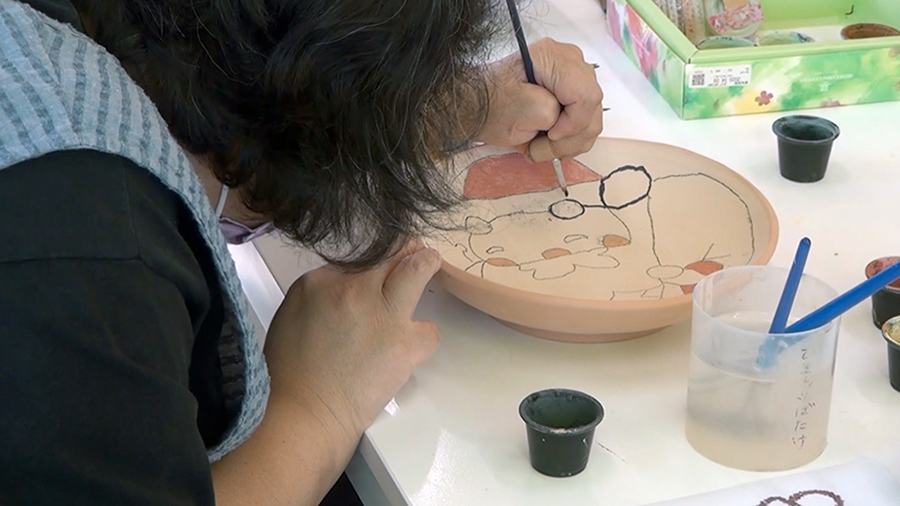
Team | COCRE
Co-contributor| Sunflower Field Assisted Living Facility
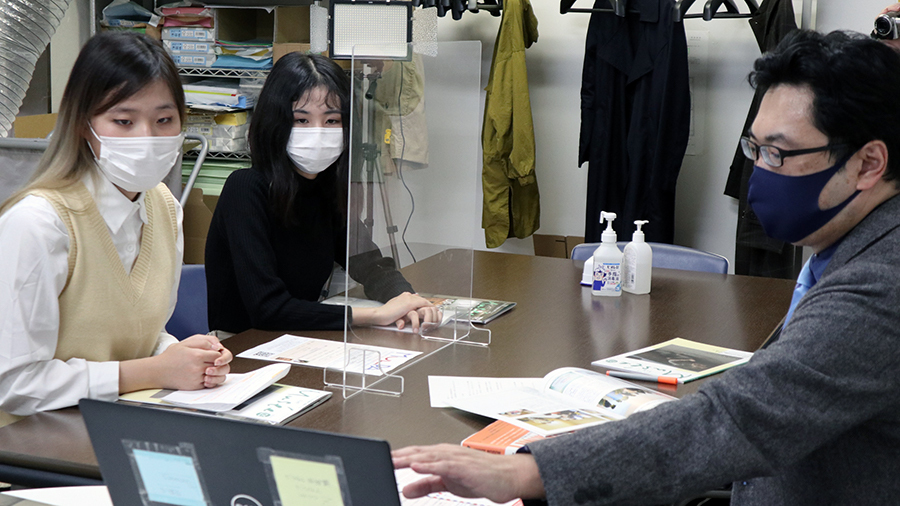
Team | GRAPE
Co-contributor | MULPA Academic/Cultural Exchange Group, Kanagawa International Foundation
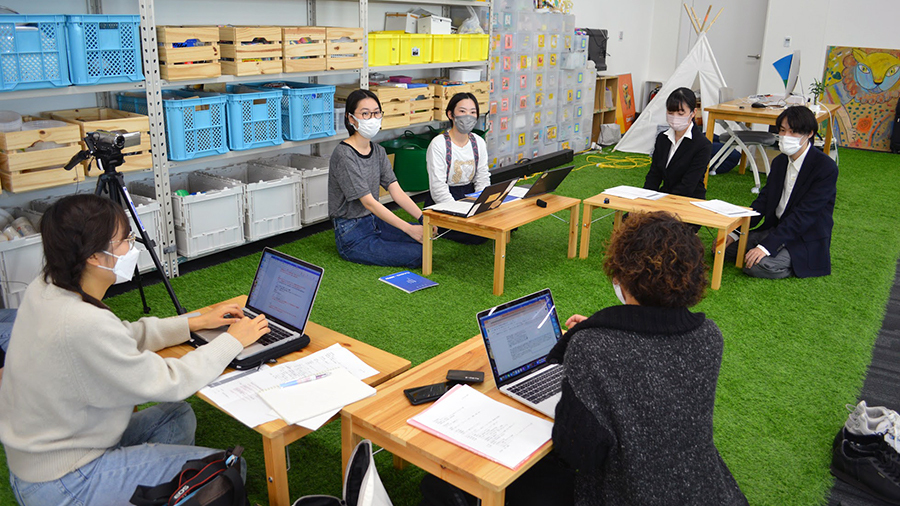
Team | STAND BY ME
Co-contributor | CANVAS Kids Creative Workshop
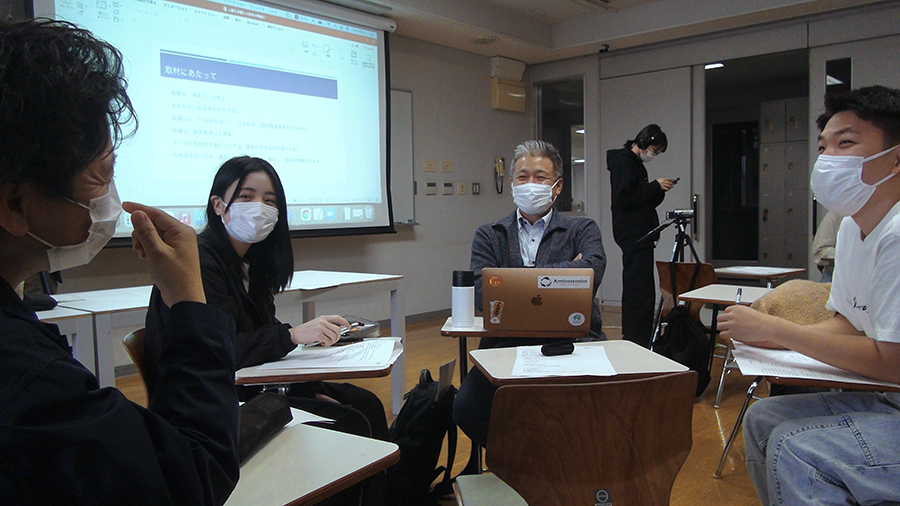
Team | JAPANESE WITH EVERYONE
Co-contributor: ARC Tokyo Japanese Language School
This year’s Yone Seminar was organized into video and publication teams as an initial trial, with the seminar students each assigned to one of four teams. Each team member was then followed closely for a documentary as they went about their tasks. This video summarizes the entire 5-month project process from kick-off through to the holding of the online events. The students were recorded each day as they studied, and documentaries were produced by each team, focusing on the students’ growth and their breakthroughs. We hope that the 5 documentaries we have produced will help people become familiar with inclusiveness.

This year marks the 4th year of the “Nippon Multicultural Co-existence Promotion Project”, an industry-university project undertaken jointly by CASIO COMPUTER Co., Ltd. and Musashino Art University. In FY2020, a participatory event was planned and implemented that stressed small-group interactions and welcomed speakers from diverse backgrounds. On the day of the event, five speakers and 28 participants came together for a highly fruitful exchange of views. We would like to take this opportunity to sincerely thank all the participants for being present.
In 2020, the impacts of COVID-19 have highlighted many divisions and disparities. While the rapid adoption of online communications has led to more efficient social interactions and created many more opportunities for conversation, it has also increased the tendency for people with shared value systems to gather together. It seems that all our socializing and our encounters with other people have been dropped into this empty void created by what we refer to as "social distancing". It is precisely for this reason that we opted to continue this project aimed at bringing together people with different values and fostering a new culture from those interactions. We cannot currently make the sort of documentary video of the project's activities that we've made in past years. So this year, thinking about what we can do in the online space and what is required in this online era, we have worked towards a project goal of designing opportunities for online interactions.
Rather than producing documentary videos, the core work of the project has become designing the events themselves. Our approach is for one project to consist of the entire sequence from holding the event and making a behind-the-scenes documentary through to producing the event report. We think it will be fun to share the learning experiences of the nine students and teachers and the Casio staff.
The Japanese society in which we live is home to many different people, each with their own values that reflect the interactions of various factors, including their origins, their language and their environment. By interacting with people from diverse backgrounds in this event, we hope to start getting involved in a multicultural society and to think about what we ourselves can do.

Shahran Ishino
(Shahran Consulting)

Seisho Sasaki
Yokohama City Hall Official, Multicultural Youth Project

Sarah Underwood
Kodaira City Coordinator for International Relations

Sonia Slama
(Foreign Language Instructor, Multicultural Square AIAI)
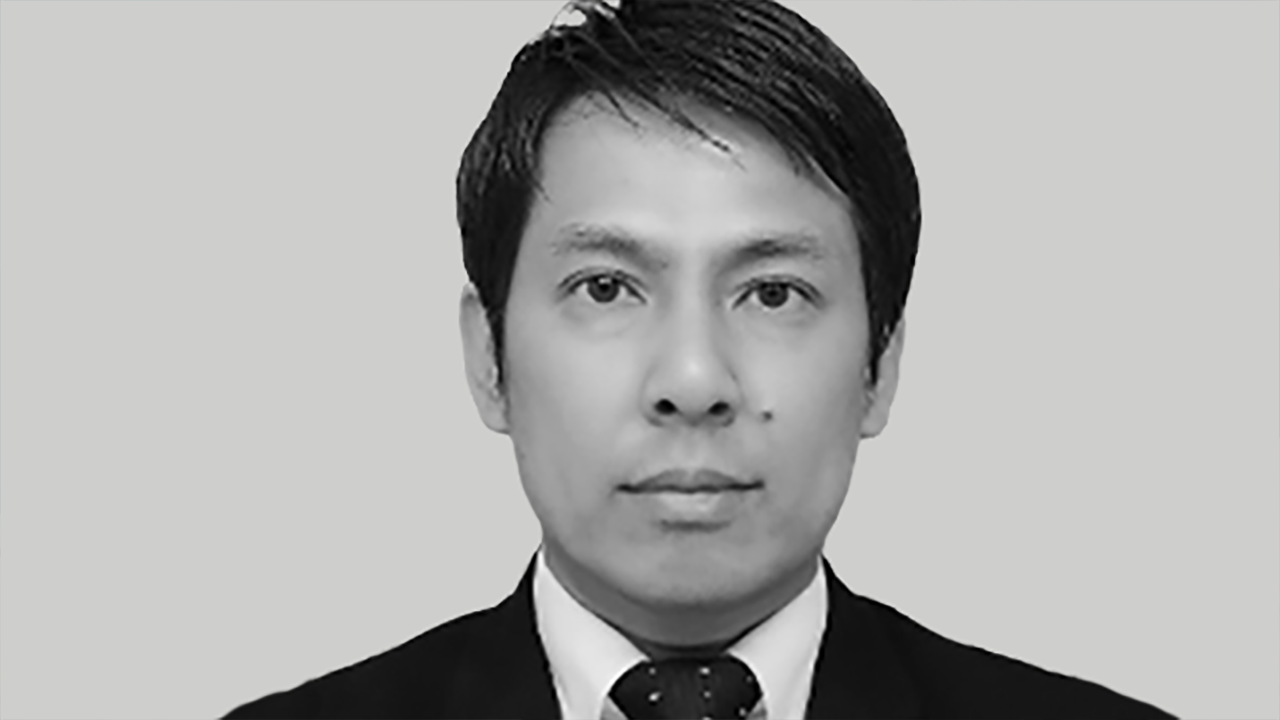
Takahiro Matsui
(Agency for Cultural Affairs)
As students in the Yonetoku Seminar, we recorded a video of our journey leading up to the holding of the "Our Pathways Here -- Encounters with Multicultural Co-existence -- " online event while participating as team members in the Advanced Japanese course. The course was a hybrid of online and in-person classes and ran for five months. The event was held online. In this documentary, you get a glimpse of the processes that led up to the event. The theme of our work is "Our Growth". Through the event itself and experiences such as coverage of the speakers and people's participation in the human library from which the event draws its structure, the documentary will show you how we are gaining a deeper understanding of how to address multicultural co-existence.

This documentary depicts the activities of NP Kandel, Representative Director of Unibird Inc., a company founded to support employment of foreign students.

This documentary covers the extensive activities of the staff and volunteers of Kodaira International Friendship Association (KIFA).

The Ruby is a Myanmar restaurant that offers heart as well as cuisine. This documentary closely follows the activities of Kyaw Kyaw Soe, the owner, who serves as a bridge between Myanmar and Japan.

Today as well, Japanese language teacher SHIMADA Kazuko follows her dream of multicultural co-existence. This documentary focusses on the bonds unfolding between the people that surround her.

KAMIYOSHI Uichi, a teacher specialized in Japanese language education, is always surrounded by smiling faces and the spirit of discovery. The documentary tries to present his thoughts on a multicultural co-existence society.
Being students of the YONETOKU Seminar, we recorded the activities of the Nippon Multicultural Co-existence Promotion Project, which was carried out and advanced by five student teams. Not only did we get to know the key persons of the video, but we also were able to deepen our understanding of multicultural co-existence through the communication between the members. Our awareness has moved away from the large frameworks of nationality and culture towards what is near us, and we are now thinking about what we can do starting today. This video documentary covers about five months of activity by the five teams.

On January 31 at the Musashino Art University Design Lounge (Akasaka, Minato Ward), CASIO COMPUTER Co., Ltd. held a presentation announcing the outcomes of her joint industry-university project with Musashino Art University.

This is a documentary that shows the hard work done by Tomoe Ono, a representative of the ASIA LINK employment agency for overseas students, as she tries to find work for students.

This is a documentary intended to portray the realities of life for foreign mothers bringing up children in Japan through the activities of the “Tabunka Hiroba AIAI” citizens club.

The “Bridge Institute of Technology - Okutama”, which trains foreign IT engineers. This documentary looks at overseas students studying project-based Japanese through a collaboration between local government and private-sector companies.
The “Nippon Multicultural Co-existence Promotion Project” began in September 2018. In this video, we have produced a documentary that provides an overall perspective on the entire mission of the Yonetoku Seminar team. It follows the students and teaching staff involved in the project, the CASIO employees and the many other people who collaborated in the making of the videos, showing what they learned over the 5 months of the project and how the three documentaries came into being. We hope that this video will show people a new format for Japanese language education and give them a deeper understanding of the words “multicultural co-existence”.

A presentation announcing the outcomes of the joint industry-university project between CASIO COMPUTER Co., Ltd and Musashino Art University was held on February 2nd at the Musashino Art University Design Lounge (Akasaka, Minato Ward). The presentation covered an organization, now re-branded in its second year as the “Nippon Multicultural Co-existence Promotion Project”, that consists primarily of overseas students at the university who are active on the front lines of multiculturalism. Videos were used to capture the progress of interviews with overseas students from their own particular viewpoints as they interacted closely with three types of organization: employment agencies that connect overseas students to Japanese companies, parent-child-type support organizations that target foreigners and Japanese-language schools that teach both Japanese and IT skills.
The Japanese Language Learning Support Project is a joint industry-university project between CASIO COMPUTER Co., Ltd and Musashino Art University aimed at making a contribution to Japanese language education.
The project was first kicked off at the Spring Convention of the Society for Teaching Japanese as a Foreign Language, held in May 2016. For this year’s event, we have produced a series of videos that highlight the appeal of coming to study in Japan.
The videos were made by teams of Japanese and overseas students working together and are really about the Japanese language, not about making movies. What we want to convey through these videos is how wonderful it can be when young people from all over the world come together to study Japanese.
Well, that’s our take on it anyway.
We hope that when you watch this video and see the overseas students themselves talking about the fun they have studying Japanese and how much they enjoy it, you’ll feel the same way.




We produced this short video in discussion with the students enrolled in the “Advanced Japanese” course run by Associate Professor Miyo Jumpei at Musashino Art University. Our aim was to show people in ASEAN countries who are studying Japanese how much fun it can be to study Japanese and to highlight the appeal of being an overseas student in Japan. The production process for the documentary involved filming the Yonetoku Seminar students in the university’s Department of Arts Policy and Management for around 6 months. By showing the background to the production of the video, we were aiming to convey the significance of this project.